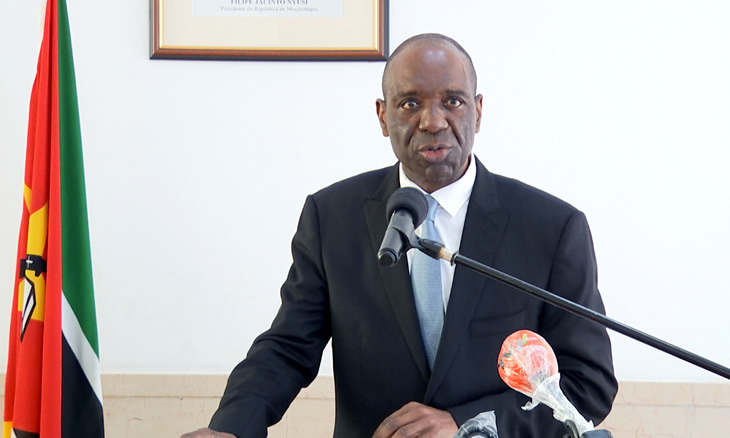Mozambique: National Health System Law approved by cabinet, heading to parliament
Mozambique: Permanent Secretaries must fight corruption – AIM report

Photo: O País
Permanent Secretaries, the highest ranking civil servants in Mozambican ministries must guarantee “the implementation of measures that help prevent and fight against corruption”, declared Prime Minister Carlos Agostinho do Rosario in Maputo on Monday.
Speaking at a ceremony where he swore into office the Permanent Secretaries of ten ministries, Rosario described corruption as “an evil which undermines the social and economic development of our country”.
The Permanent Secretaries, he insisted, must continually improve the mechanisms of internal control and systems of responsibility and accountability “so that we have good management of public assets”.
The Permanent Secretary, Rosario said, “must guarantee good management of financial resources and assets, complying strictly with the norms in force on these matters”.
He must also “ensure transparency, impartiality and speed in dealing with the administrative acts concerning selection and recruitment of staff” in order to ensure that the public administration has trained and motivated human resources.
Among the tasks of the Permanent Secretaries, Rosario stressed, were “to ensure the expansion and improvement of public services, so that more citizens benefit from them”, and “to remove red tape and simplify procedures, so as to improve the business environment”.
If such measures were implemented, Rosario added, “we shall consolidate a Public Administration which responds speedily and effectively to the concerns of citizens and works for the welfare of the public”.
“With a Public Administration working rapidly, and freed of red tape, we shall also be creating conditions for greater dynamism and strength of the business sector, particularly of small and medium enterprises, and thus promote the creation of more jobs”, he said.
The ten Permanent Secretaries who took office are: Francisco Novela (Foreign Ministry); Casimiro Mueio (Defence); Fortunato Oliveira (Gender, Children and Social Welfare); Abel Assis (Education); Jorge Jairoce (Industry and Trade); Hélio Banze (Public Works); Claudina Mazalo (State Administration); Emília Fumo (Land and Environment); Nilza Miquidade (Science and Technology) and Ndiça Jaime (Culture and Tourism).













Leave a Reply
Be the First to Comment!
You must be logged in to post a comment.
You must be logged in to post a comment.